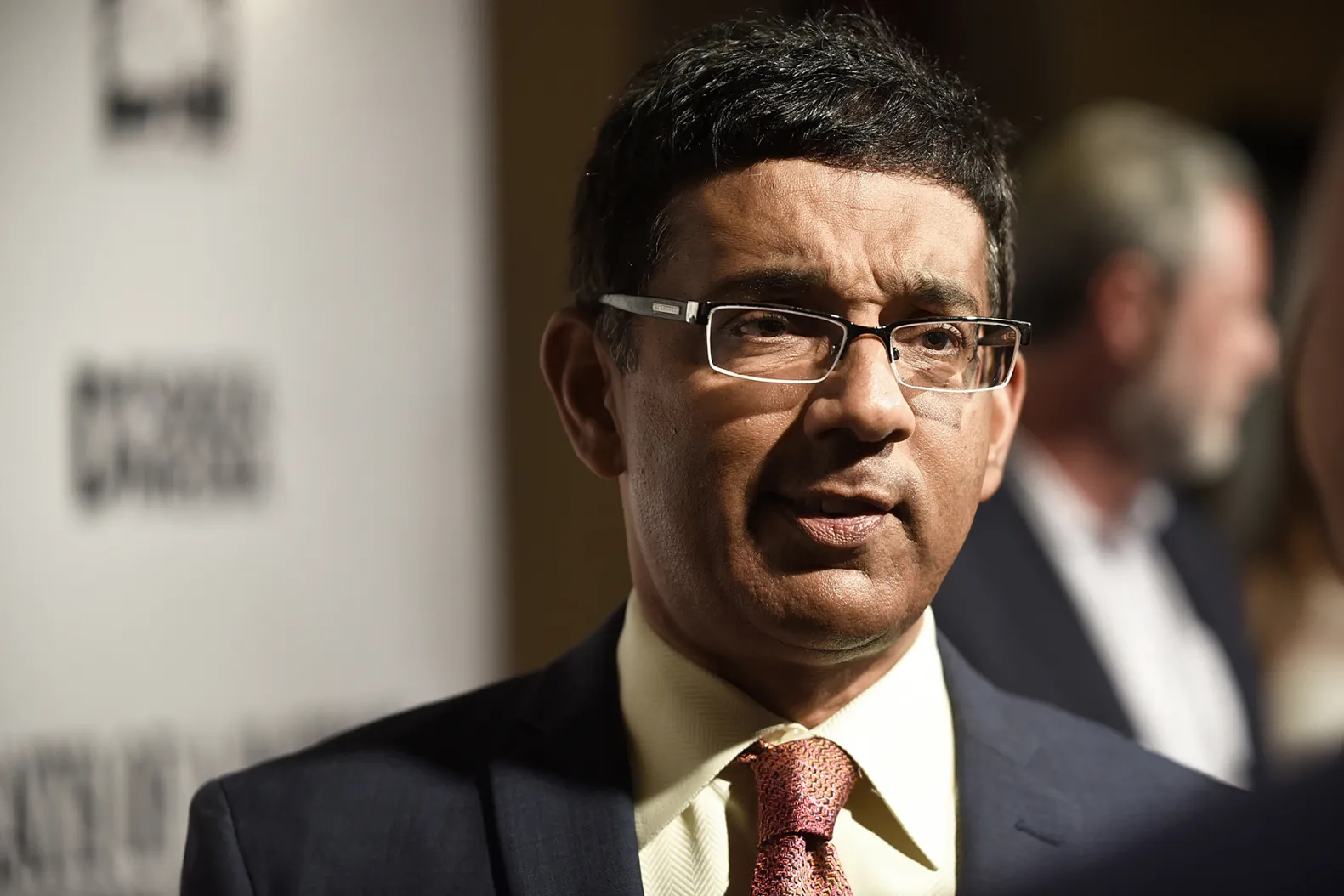Conservative commentator and filmmaker Dinesh D’Souza has issued a public apology to Mark Andrews, a Georgia resident featured in his controversial documentary 2000 Mules. The apology addresses claims made in the film that falsely accused Andrews of engaging in illegal ballot harvesting during the 2020 presidential election. The acknowledgment marks a rare moment of concession from D’Souza, even as he continues to defend the film’s broader message about election security and integrity.
The apology follows years of scrutiny and backlash over 2000 Mules, a film that used surveillance footage and cellphone geolocation data to allege widespread ballot fraud in swing states during the 2020 election. Andrews, who appeared in the documentary, was depicted depositing five ballots into a drop box in Lawrenceville, Georgia—footage the film claimed was evidence of fraudulent activity. However, a subsequent investigation revealed that Andrews had legally submitted ballots for himself and his family members, all of whom live at the same address.
In a statement released on December 1, 2024, D’Souza admitted that the film’s portrayal of Andrews was based on inaccurate information provided to him and his team. “I now understand that the surveillance videos used in the film were characterized on the basis of inaccurate information,” D’Souza said. He also apologized directly to Andrews, acknowledging the personal and professional harm caused by the allegations.
While conceding this specific error, D’Souza maintains that the overarching concerns raised by 2000 Mules about election integrity remain critical. “The need for secure elections and transparent processes cannot be overstated,” D’Souza said. “This incident, while regrettable, should not distract from the broader issue of ensuring our elections are beyond reproach.”
The Impact on Andrews and Ongoing Legal Battle
The false portrayal had severe consequences for Mark Andrews, who filed a defamation lawsuit in October 2022 against D’Souza, True the Vote (the organization that supplied data for the film), and Salem Media Group, which published and distributed the film. Andrews claimed that the documentary not only defamed him but also subjected him and his family to threats and harassment.
Earlier this year, Salem Media Group settled with Andrews, issuing an apology and agreeing to halt the distribution of 2000 Mules across its platforms. Salem acknowledged that it had relied on representations made by D’Souza and True the Vote, which later admitted in court that it lacked evidence to support the film’s claims of illegal ballot harvesting.
Broader Criticism and Defense of 2000 Mules
The film has been a lightning rod for controversy since its release, drawing significant criticism from fact-checkers and mainstream media outlets. Independent analyses have repeatedly debunked its claims, and courts have dismissed key allegations made by True the Vote.
Despite this, 2000 Mules resonated with millions of Americans who remain deeply skeptical of the 2020 election’s integrity. For many on the right, the film underscored unresolved concerns about irregularities and the need for stronger safeguards in the electoral process. D’Souza’s supporters argue that the backlash against 2000 Mules reflects a broader effort by the left to silence dissent and suppress questions about election practices.
D’Souza’s apology is unlikely to appease his critics, but it has been framed by his allies as a demonstration of accountability. They point out that while mistakes may have been made in the film’s execution, the focus on protecting America’s elections from fraud remains valid and necessary.
Moving Forward
The defamation lawsuit filed by Andrews is ongoing, with remaining claims against True the Vote still unresolved. Meanwhile, D’Souza continues to advocate for election reform, insisting that the lessons of 2000 Mules should spur a national conversation about transparency and voter security.
For conservatives, this episode serves as a reminder of the importance of vigilance in upholding election integrity while ensuring accuracy in presenting evidence. As the nation gears up for the 2024 presidential election, the debate over how to balance security with fairness in voting practices will likely remain a defining issue in American politics.
This controversy highlights the ongoing polarization surrounding the 2020 election and the challenges of ensuring that the pursuit of truth does not come at the expense of fairness and accuracy. D’Souza’s acknowledgment of error is a rare moment of contrition in a heated debate, but the underlying issues raised by his film continue to resonate with a significant segment of the American electorate.
Sources:
- Creator of ‘2000 Mules’ apologizes to Georgia man falsely accused of ballot fraud in the film
- Dinesh D’Souza apologizes for false claims in election conspiracy theory film ‘2000 Mules’
- Publisher of ‘2000 Mules’ apologizes to Georgia man falsely accused

